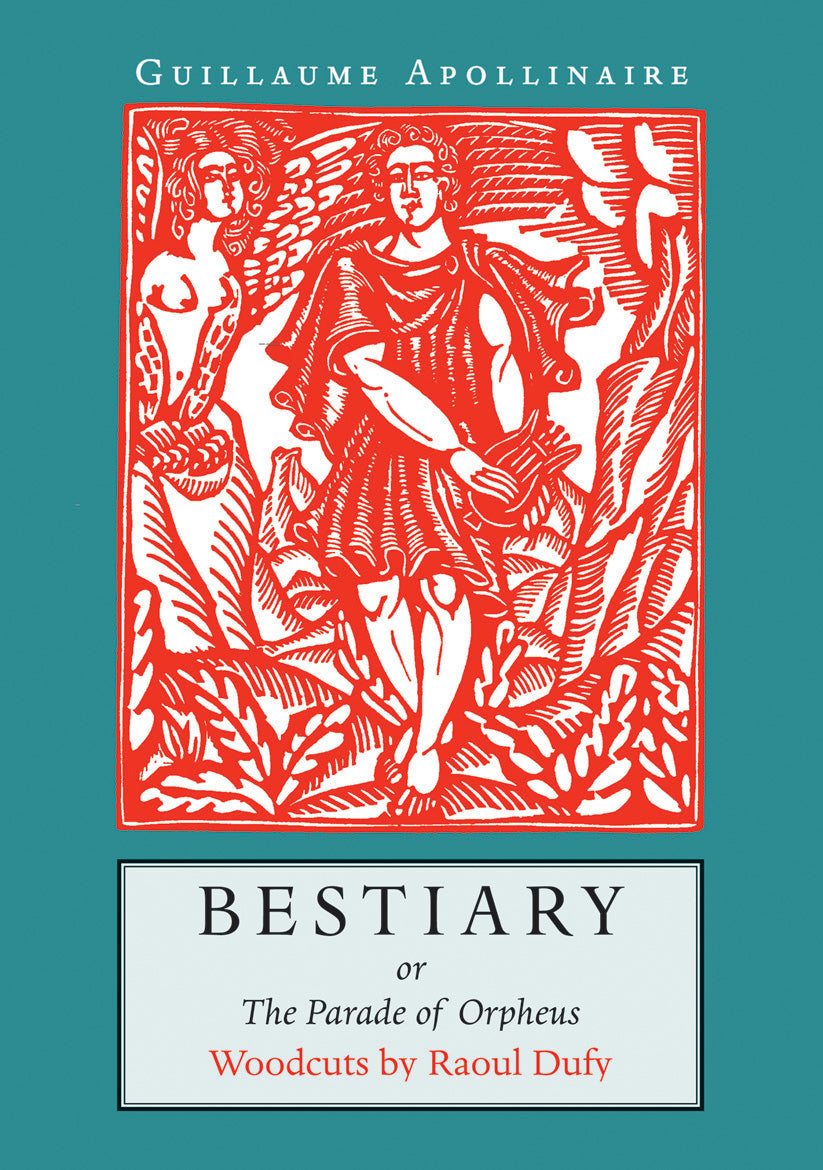
Thirty short poems by Guillaume Apollinaire, with woodcuts by Raoul Dufy, that celebrate mammals, birds, fish, insects, and the mythical poet and prophet Orpheus—filled with surprising images, wit, formal mastery, and wry irony.
First published in 1911, and embellished with the graphically sophisticated woodcuts, this collection presents a voice that ranges from the colloquial to the impassioned, a brisk combination of lyric imagery and bawdy humor.
Apollinaire was an early and influential champion of Cubism, the friend of Braque, Picasso, Dufy, and Rousseau, and a seminal figure in the revolutionary art style known as “Surrealism,” a term that he coined. This a rare treat for lovers of French literature, art, and culture.



